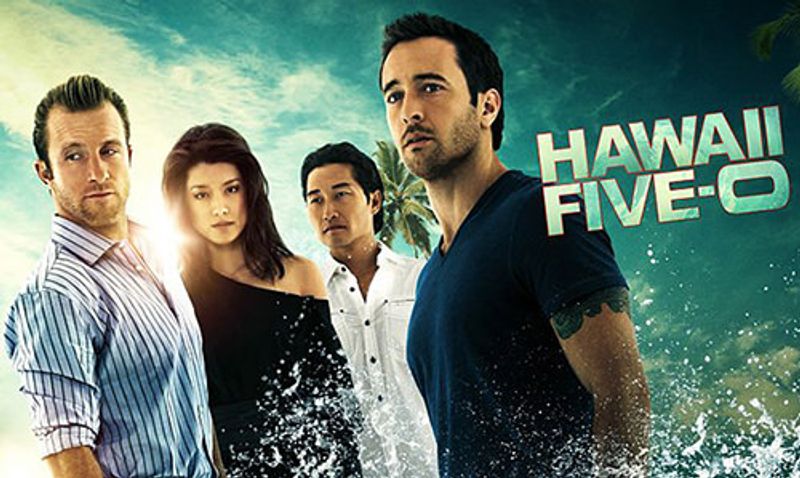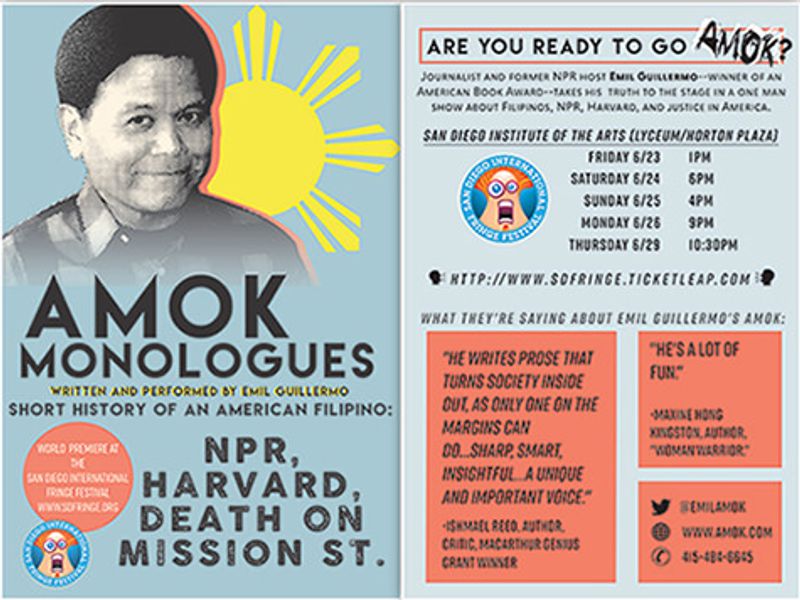Blog
Oh no, “Hawaii Five-0” and what it means to all of us
When I first heard about Daniel Dae Kim and Grace Park leaving “Hawaii Five-0,” I couldn’t believe it.
The stars of the long-running TV crime procedural based in the 50th state simply asked for pay equity. They got the cold shoulder instead. Their exit leaves CBS with what it deserves. Hawaii Five-nothing.
(photo by Loren Javier)
I’m not watching a show with zero Asian American stars going into the eighth season.
Really, how do you just let your top Asian American cast members on a TV show set in the nation’s most Asian American state just pick up and leave?
It’s easy if you don’t value diversity. Or to be more specific, equality.
Here’s the deal the white co-stars get that the Asian American stars don’t. More pay. And a cut of the series profits. As if the white stars are the draw that carried the whole show.
They’re not.
I don’t even know who the co-stars Alex O’Loughlin and Scott Caan are.
Frankly, I couldn’t pick them out in a line at a Panda Express.
But, of course, CBS Television Studios, the show’s producers, wouldn’t budge.
And this is in a show that I would say was equally Kim’s and Park’s.
All this proves is Asian American leverage in showbiz remains zero. Unless you’re married to the boss like Julie Chen, who has climbed to the top on the shoulders of “Big Brother.” But for the majority of Asian Americans who appear on the glassy side of the camera, the message is pretty clear. Just be happy to get SAG/AFTRA scale. Know your place. Don’t overreach. You’re the hired help.
As my old friend Guy Aoki of the Media Action Network for Asian Americans told Hollywood Reporter, “the racial hierarchy established in the original 1968-1980 series remained intact in the 2010 reboot: Two white stars on top, two Asian/Pacific Islander stars on the bottom.”

It’s sad that at this time in history, in what should be a vehicle for Asian Americans. this is how Asian American stars are treated.
If you can just let a guy like Kim, arguably one of the top male Asian American stars in Hollywood, just leave, that’s a major message to someone like me who wants to be the next Victor Wong. Or Amy Hill.
Despite all the window dressing and Asian American stars you can point to, showbiz remains as racist now as it ever was.
I’m particularly depressed by this after coming off a short run at the San Diego Fringe Festival with my one-man show, “Amok Monologues.”
My one good review made it worthwhile.
Still, I’m a journalist and storyteller by trade. I combined the theater at this juncture in my life because I studied acting and drama a long time ago when I was in college and in grad school.
Back then, I even thought about going into acting. But when the only Filipinos I saw played beach boys and drivers, I thought better of my stereotype.
In fact, the best role I ever got was playing the white guy in black theater. But then maybe that’s because my college roommate was the director and he owed it to me.
I realized early on that it wouldn’t happen for me in showbiz unless I write my own stories. But for me, the urgency of journalism outweighed the lure of show business. I felt the facts needed to be established before I felt comfortable telling stories on stage.
That meant turning to journalism to tell our stories, even with hairspray and makeup, as I did when starting in TV.
I thought TV would provide the right balance between showbiz and journalism. At KXAS in Dallas, I worked with Scott Pelley. (Would he have ended up like me had his name been Pellicito?) At KRON-TV in San Francisco, I worked with some of the most talented folks in the business.
Oddly, my career climbed to its furthest point the more people couldn’t see me— in radio, where I could sound as white as anyone.
But my life in the media shows, you still can’t escape what Aoki calls that “racial hierarchy.” Whites still control. And if being Asian American is important, or being deracinated sounds hideous to you, you’re out of luck.
Some make the compromise anyway, and hang on. Temporarily. But it catches up to you. You are who you are. And that can be a factor in how far you go in media.
Maybe there are enough Asian American anchors around (predominantly women), so you can debate me and insist that things are changing. But that may be all show. If salaries were revealed, like in the “Hawaii Five-0” situation, I bet we’re still being lowballed.
So what does it mean to everyone else not in showbiz or journalism? Plenty. If you don’t play in the ensemble, or play the lead in fake TV life, don’t think you’ll get a fair shot in real life quite as easily.
TV helps create the stereotypical reality. When we don’t show up in the image-making machinery of our culture, it’s much harder to show up anywhere. Did CBS care that Hawaii was the most Asian state in the nation?
When a show can get away with dumping its key Asian stars just like that, it will surely embolden those in other industries.
Gains don’t come without a challenge. For as long as necessary. Look at American history. And look at the current backslide on major issues from affirmative action to voting rights.
“Hawaii Five-0” is TV giving us a reality check, just when we thought we had made some progress. I mean, more than 50 years after the Civil Rights Act and Voting Rights Act, you’d figure we would get a break on things that are pretend. But somewhere on top of the heap, someone has made a decision. Paying two Asian American actors what they’re worth isn’t good business. So Kim and Park are gone. The white fantasy of “Hawaii Five-0” lives on.
In the meantime, I’m not watching a Kim-less, Park-less 5-0.
I encourage you to do the same, and to support Asian American actors, producers, and writers in their projects.
And I’m doing what others are doing these days. Writing my own stuff. Telling my own stories. It seems to be the only way to beat the racial hierarchy of Hollywood.

So watch for the next Emil Amok’s Takeout coming soon here!

Emil Guillermo is an independent journalist/commentator. Updates at www.amok.com. Follow Emil on Twitter, and like his Facebook page.
The views expressed in his blog do not necessarily represent AALDEF’s views or policies.
Read Emil's full bio →